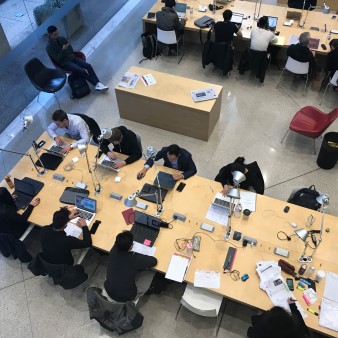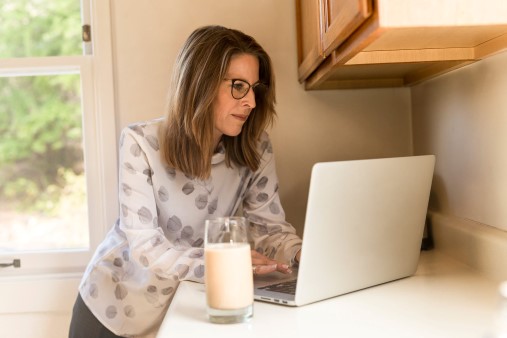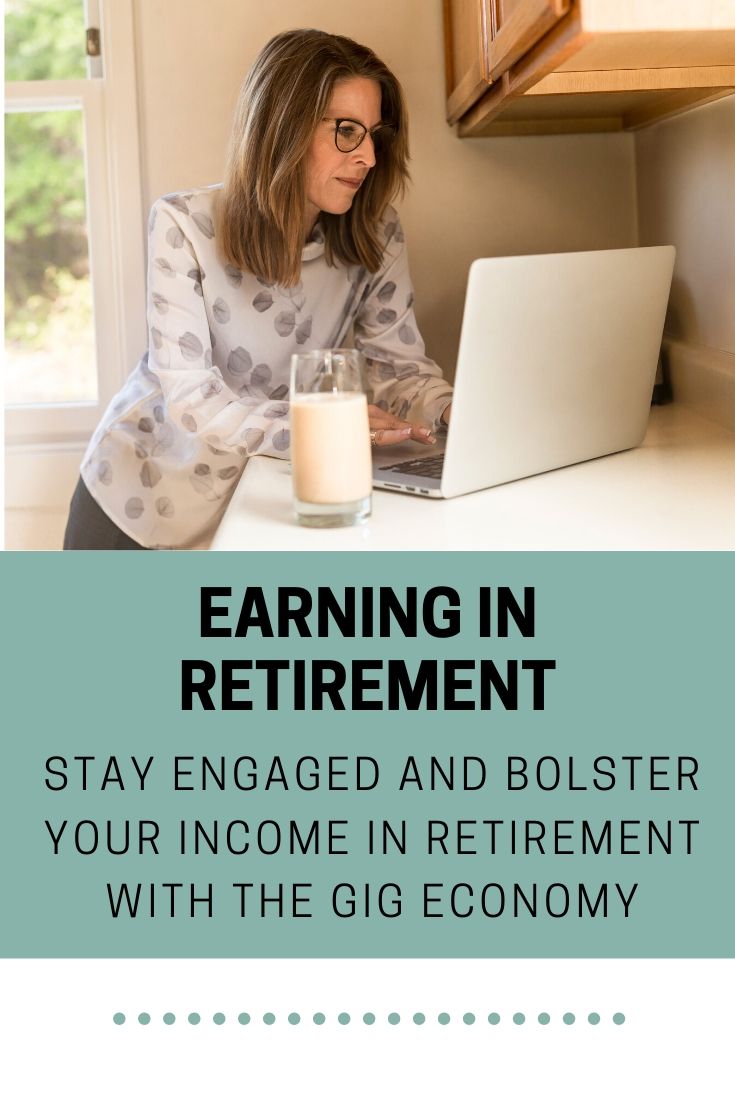Whilst retirement seems an idyllic destination to arrive at, it isn’t for all of us. One of the things we can miss is work, whether for the companionship, the mental stimulation or the income. The Gig Economy can be an ideal way to balance those needs with more time for ourselves. In conjunction with IncomeConnection we have taken a fresh look at options for including the gig economy in your retirement planning.
Updated January 2020
Attitudes to work and why the gig economy might be part of your retirement lifestyle
According to Gallup (The State of the Global Workplace, 2017), only 14% of Australians and New Zealanders are actually happy at work. So it’s not surprising that so many people dream of a work-free retirement one day. Yet when they achieve their dream, many experience a huge sense of loss that in some cases even damages their health.

The good thing is that working doesn’t have to be an either/or. We can leave behind the intensity of our full time careers and take advantage of new opportunities to redefine work. Drawing on our self-knowledge that grows as we get older, we can work in new ways that suit us and achieve a greater sense of purpose and meaning.
What are the good things about working?
Working gives us a buzz from achievement, it provides social connection, the pleasure of collaborating with others; contributing our skills and working together towards a common purpose. And of course work can help us to avoid the sense of relevance deprivation that many of us feel in retirement
Another benefit of working is the ‘positive stress’ of having our week structured and people depending on us. We have deadlines and are expected somewhere at a certain time – essentially providing services that people are paying us for.
Even the small things of navigating our journey to and from work engages us in our communities and gives a sense of being part of something bigger.

There is also identity and status associated with our job. Meeting new people and being asked ‘what do you do?’ can be uncomfortable and having some work to talk about can be an easy launch into conversation.
Dr Martin Seligman, author of ‘Authentic Happiness’, identified five things as being important to happiness. These are positive emotions, engagement, relationships, meaning and achievement. For many of us, work has either intentionally or unintentionally gone a good way towards meeting these needs for most of our lives.
Types of ‘work’ in retirement
So how do we bring ‘positive work’ into retirement? Here are three options:
1. Continue in our career, but on a part-time, casual or consulting basis
If you enjoy your work, this option is a great one. It can be much easier to negotiate going part-time with your current employer than picking up part-time work on the open market.
Increasingly organisations are offering project work to their ‘alumni’ employees. So touching base with your past employers can be a source of flexible work with organisations that value your experience.
2. Volunteering
Volunteering can tick the ‘positive work’ box and be incredibly satisfying.
Volunteering is a great way meet our achievement, teamwork, purpose and positive stress needs. Many organisations appreciate our skills that we have honed over the years.
If you miss the status, identity and community that your career provided, charities, sports and community groups have consultancy, high profile and leadership roles such as on boards and advisory councils.
Volunteering can be work with greater meaning. What I enjoy about volunteering is that I am actually doing something about the issues that have tugged at my heart over the years. For me these are refugees and children with disability. Everyone’s heart is moved by something different and often following yours can guide you to satisfying work.
Volunteering roles are increasingly becoming more like jobs. Volunteering job boards and placement agencies can help you into the right volunteering role. There can also be hoops to jump through such as mandatory training and checks for Working With Children as well as with police and your character referees. And volunteering isn’t for everyone so don’t let yourself be told ‘it’s what retirees do’.
3. Flexible opportunities in the gig and sharing economy
Expanding our options is the gig and sharing economy. There has always been flexible work available. What is new is the ability to access it via online market places, picking up work, when and where we want to, from our mobile phone, tablet or computer.
Also new is that people are willing to pay us for activities and assets that previously did not have a monetary value. Suddenly we can work in retirement much more on our own terms.

Companies in the sharing economy space are increasingly targeting older people. Whilst Uber and Airbnb are better known, (28% of Airbnb hosts are aged over 60), there are many more options to consider.
How does the sharing economy work?
Over 150 marketplaces are now operating in Australia across a broad range of areas; including food and hospitality, training, art and design, technology, real estate, transport, entertainment, domestic, health, professional and employment services. As well, you can rent out storage space in your home, your car when it is unused, camping space in your backyard…. the options are seemingly endless. And of course you can sell your skills through marketplaces like Airtasker, Fiverr, Better Caring etc. Airbnb is a marketplace as is Uber, think in the terms of physical markets where buyers and sellers come together, but in these instances the market is online or virtual. On the IncomeConnection website you will get you an overview of the types of opportunities available. You can even sell advertising space on your car.

Working in this way ticks the ‘positive work’ box; providing structure, achievement and community connection. One thing that is different versus employment is that you generally need to get an Australian Business Number (ABN).
Some people like the flexibility; you can turn the work off and on. One woman is obtaining flexible work through an online marketplace in her career occupation of change management. As it’s not a job, she can stop it at any time to pursue one of her other interests.
Another woman used marketplaces to set up an income when moving to a regional location, as she had left behind her usual source of work.
For others, the sharing economy is an alternative to starting a small business. Instead of starting from scratch, marketplaces make it easier to source customers. One client used a marketplace to turn her artistic ability into an income stream. Some people use online marketplaces as a low risk way to test the sales potential of their product or service before establishing a small business.
Others set up a side-gig while still working in their career job, in order to experiment with an idea that they want to develop more fully in retirement.
Despite our love – hate relationship with the world of careers and work, we are seemingly hardwired to do some sort of ‘work’. The challenge for us then is to design work that suits us, that is purposeful and fits in around the life that we want to live. Some people find experimenting with different types of ‘work’ while they are still in their career job helpful in discovering the mix that is satisfying for them.
For more ideas on working after ‘retirement’ you might enjoy these posts:
New Career in Retirement; the emergence of seniorpreneurs
Step up or step aside; why your skills and attitude might need a refresh
and there are more posts on work here
Or of course check Booktopia for great books on retirement, the gig economy and working lives.
What has your experience been? Have you missed your working environment? Is the gig economy something you have investigated or are actively involved in?





